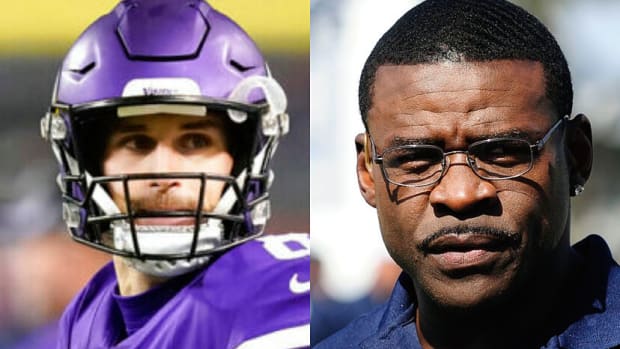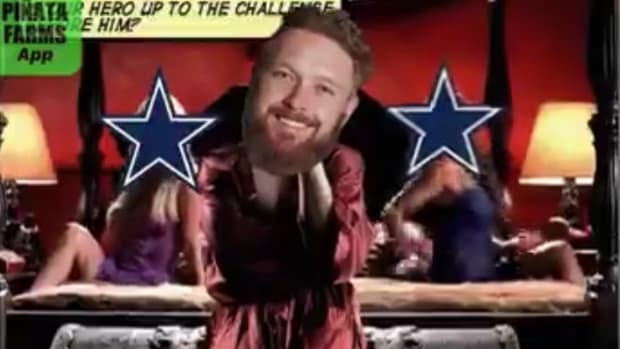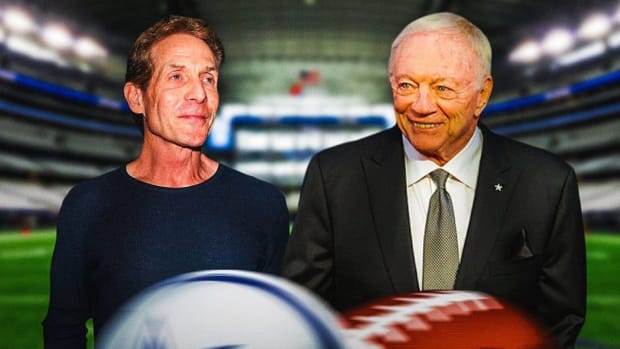Cowboys & COVID-19: New Reason To Sign Dak Prescott Long-Term Now
FRISCO - Even in a "normal'' NFL climate - that is, one without the cloud of COVID-19 hovering overhead - there are plenty of reasons for the Dallas Cowboys to wish to forge a long-term contract with franchise QB Dak Prescott.
But the threat of the coronavirus and how it might hurt 2020 league revenue, and therefore hurt the 2021 NFL salary cap, provides the Cowboys with yet another motivation to seal a long-term deal before the July 15 deadline.
As it stands, should the two sides not reach a long-term contract by that deadline, Prescott will make $31.409 million in 2020. And he'll count $31.409 million. That, by itself, is not a problem; he already counts that much against the cap, and Dallas still has $11 million or so of room under the 2020 cap of $198 million.
But NFL capologists have real concerns that lack of league revenue (no fans in the stadiums, for instance) will mean the 2021 cap will not grow at its previously expected rate. It could go down; it could stay "flat'' for 2021 and even beyond.
What does that have to do with Dak?
Before COVID-19, there was an argument to be made for the Cowboys letting Prescott play for the $31.409 million in '20 and then to allow him do also play under the tag in 2021. That year's salary would jump to $37.7 million.
But now? Say the 2021 cap does not increase. That would mean that while Dak's 2020 salary ate up 15 percent of the cap, his 2021 salary would eat up almost 20 percent of the cap. That might not be the "automatic Super Bowl-chances killer'' some think it to be, but it's certainly not optimal.
A team's cap number going down while its highest-paid player's number is going up is ... not a great formula.
A long-term contract is therefore more critical in a COVID-19-threatened era than ever before. And, importantly, there are "tricks'' available to cushion any blow that might come with shrunken revenue.
Previous to that threat, a structure similar to that of Seattle's Russell Wilson made sense. Wilson a year ago signed a four-year deal that averages $35 million per season - but the first year counted lower than that, $26 million, giving the Seahawks some temporary elbow room.
But now? While Dak wants a four-year deal (likely similar to Wilson's in value), and while Dallas is offering a five-year deal (mirroring Wilson's $35 mil APY), a coronavirus monkey wrench: Having Dak's second-season cap impact salary increase from his Year 1 number seems unwise, given what might happen to the cap.
So, to what we view as the best "trick'': The Cowboys could actually structure Prescott's contract so it is lower in Year 2 than in Year 1. The best way we know of to do so:
Include in Year 2 an "option bonus'' (our friend Joey Ickes explains the concept here in showing how the Eagles "hid'' $30 million in Carson Wentz' deal.) As Joey Ickes reminds us, the "option bonus'' is really just salary, but the terminology allows it to act as a "second signing bonus'' and is therefore prorated - that money spread out over future years.
That would do it. Dak's Year 1 number would fit nicely under the existing cap. Dak's Year 2 would do the same, coming in well under the $35 mil APY.
In Wentz' case, his APY was $32 million but in Year 1 his cap number was $8 mil and in Year 2, 2020, it will be $18 mil - again, because the extra $30 million he's getting in his pocket doesn't yet count against the cap because it's a spread-out bonus.
The full "spread-out'' factor for Wentz and the Eagles and that "option bonus'' is five years. Could the Cowboys do exactly the same thing? Yes, especially of Prescott would agree to the five-year deal they are proposing; the spread-out of a "hidden bonus'' is substantially easier the longer the deal is.
All of this adds another wrinkle to the "Four years vs. five years'' debate, and to the "Aw, just franchise him twice'' debate, too. COVID-19 and potential cap flattening or even shrinkage mean a new level of urgency for the Cowboys to wish to complete a long-term deal with Dak in the way they envision ... and before July 15.




